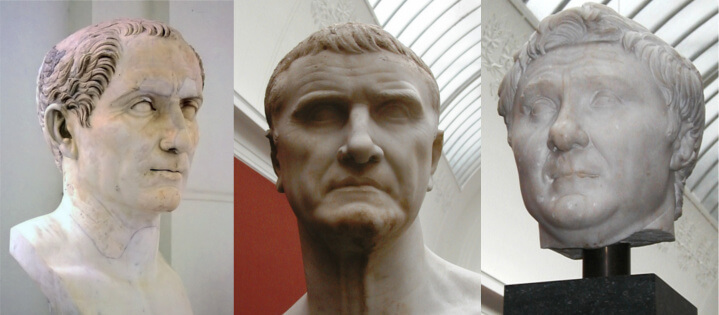Who is Marcus Licinius Crassus? Information on Roman politician Marcus Licinius Crassus biography, life story and political career.

Source : wikipedia.org
Marcus Licinius Crassus; (c. 115-53 b.c.), Roman politician. When both his father and brother perished on orders of the supporters of the general Marius in 87 b.c., Crassus fled to Spain, where he built an army. He joined Sulla in 83 and successfully commanded Sulla’s right wing at the Rattle of the Colline Gate in 82.
Sale of confiscated property brought him great profit, and he added to his fortune through investments and moneylending. His personal affability and appearances as a defense counsel won him a large following. He allegedly remarked that no man can call himself wealthy who cannot support a legion. In 70 he in fact raised a private army at the state’s request to crush Spartacus’ revolt of slaves and gladiators.
Crassus and Pompey shared the consulship in 70, but bitter personal rivalry between them endured throughout their careers. In his censorship of 65, Crassus proposed the enfranchisement of the Transpadane Gauls and espoused the annexation of Egypt. In 59, Julius Caesar, who was friendly with both Pompey and Crassus, brought about their reconciliation and the so-called “First Triumvirate.” However, personal bitterness toward Pompey continued. When senatorial opposition threatened the alliance in 56, the three men renewed their ties at the conference of Luca. Pompey and Crassus held another joint consulship in 55, sponsoring legislation on electoral and judicial procedure, and Crassus became governor of Syria. Impelled by his desire for new military laurels, he conducted an offensive against the Parthian Empire. In 53 impetuosity led him across the Euphrates to defeat and death at the Battle of Carrhae.
His younger son, Publius Licinius Crassus (c. 85-53 b.c.), was a pupil and friend of Cicero. In 58, Publius accompanied Caesar to Gaul and became one of Caesar’s most trusted and effective lieutenants. In late 56 he returned to Rome to help elect his father and Pompey to the consulship. He lost his life at Carrhae.